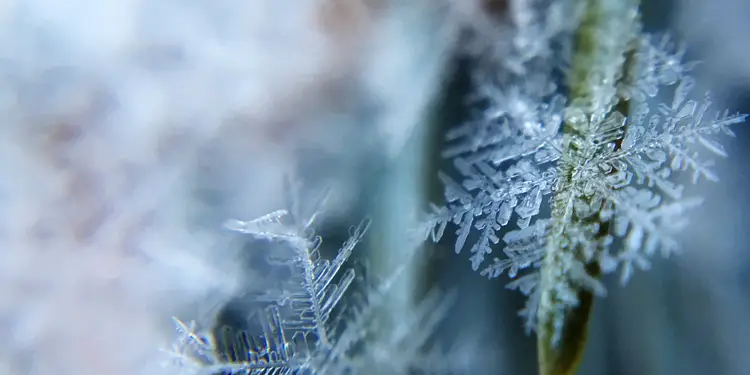Snow warnings updated

Snow is expected to hit certain areas of Scotland starting Sunday afternoon, with additional snowfall anticipated for many regions in Northern England and North Wales beginning Monday evening.
On Sunday, chilly air from the Arctic will sweep into northern Scotland, bringing the beginnings of unstable weather to all regions as a low-pressure system approaches from the Atlantic.
A Yellow National Severe Weather Warning for snow and ice has been put in place for northern Scotland and the Northern Isles from Sunday afternoon until Monday morning. During this period, expect the rain to transform into wintry showers that could include hail, sleet, and snow. While only a small amount of snow is expected to settle at lower elevations during the day, in the evening and overnight, some areas might receive between 1 to 3 cm of accumulation. On higher ground above 300 meters, snow accumulation could reach 5 to 10 cm by Monday morning. As temperatures drop overnight, untreated surfaces are likely to become icy.
Snowfall expected for some starting Monday evening.
More snow and ice are expected to arrive starting Monday evening and continuing into Tuesday. While most of the snowfall is predicted to occur in higher elevations, with around 5-10 cm expected above 200 meters and possibly 15-20 cm above 300 meters, there’s a possibility that some snow could accumulate at lower altitudes within the warning area. If lower areas do receive 5-10 cm of snow, it could cause more disruptions, especially during rush hour travel, although it's still too early to determine how likely this is.
Once the rain, sleet, and snow move out on Tuesday morning, there’s a chance that ice could develop on surfaces that haven't been treated.
You can find complete information in our yellow National Severe Weather Warning, which is in place from 7 PM on Monday until 10 AM on Tuesday.
Head Meteorologist Andy Page stated, “We have put yellow warnings in place for snow and ice as frigid conditions travel down from the north. This will result in snow showers and icy conditions in certain areas of Scotland on Sunday night, followed by a chance of snowfall that could disrupt transportation in central parts of the UK on Tuesday morning. Additionally, strong winds in the eastern region could pose a risk as well. We are likely to update these warnings for winter weather, so it's crucial to keep an eye on the latest forecasts."
Along with the serious weather warnings, the UK Health Security Agency (UKHSA) has announced a Cold Health Alert aimed at the health sector in England. This alert will be in effect for the Midlands and Northern England, starting Sunday morning and lasting until Thursday.
What makes predicting snow so challenging?
Predicting significant snowfall in the UK is challenging, and meteorologists consider several different elements. Learn more about how snow forecasts are made in the UK.
Anticipating the upcoming chilly weather and getting ready for it can truly have a positive impact.
Learn more about how to maintain warmth in your home and the impact of cold weather on your health through the Met Office's WeatherReady initiative.
As the northern regions brace for the first wave of cooler temperatures, Katherine Crawford, the Chief Executive of Age Scotland, remarked:
"As we age, it may take us more time to feel comfortable, and chilly weather can worsen issues like breathing difficulties, heart problems, and various other health concerns."
There are worries about senior citizens who struggle to keep their homes warm due to rising energy costs. Additionally, those with limited mobility may face challenges getting around, especially when travel disruptions make it difficult for them to move from one location to another safely.
We can all do a few straightforward things to make sure that no one feels isolated during this time. When the weather is poor, it can be hard for people to get out for necessary errands or doctor's appointments. We encourage everyone to reach out to older relatives, friends, and neighbors during this time to see if they could use some additional help.
A kind phone call or a willingness to assist with grocery shopping, picking up prescriptions, or clearing icy walkways can make a big difference for someone who feels alone at home during this chilly weather.
In Scotland, if older individuals, their caregivers, or family members are seeking assistance or guidance, they can reach out to Age Scotland's complimentary helpline at 0800 12 44 222.
NHS 24 is the organization in Scotland that offers digital and telephone health and care services, which includes the 111 service and NHS Inform. Dr. Siama Latif, Associate Medical Director at NHS 24, stated: “Colder weather can affect everyone's health and wellbeing, but it poses a greater risk to vulnerable groups, including young children, the elderly, and individuals with chronic health issues.”
If you have neighbors or family members who are at risk, or if you’re aware of someone who might need extra help, it's wise to reach out to them. Make sure they are doing okay, staying warm at home, and have enough food and medicine, especially if they can't go out when the weather is harsh.
If you have to venture outside in chilly weather, be sure to dress warmly and choose shoes with a solid grip to help prevent slips and falls.
"Our digital platforms, NHSinform.scot and the NHS 24 Online app, offer excellent guidance for handling winter illnesses and provide assistance with sprains and strains. These tools are essential to help you find the right advice and support, particularly during the winter season."
For the most recent weather updates, check out our website, watch our videos on YouTube, and follow us on X and Facebook. You can also access our mobile app, available for iPhone in the App Store and for Android in the Google Play Store.













































